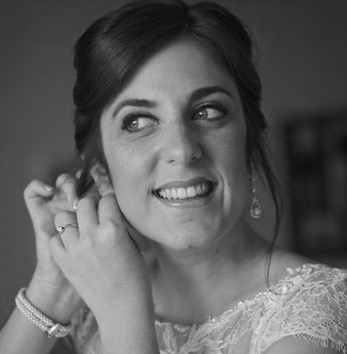Who is the Israeli woman? What composes her identity? These questions have been dealt with for decades, ever since the foundation of the state of Israel in 1948 and the establishment of the IDF that same year. From then until now, the identity of the Israeli woman moves along the scale between “mother” and “warrior.”
Israel was founded on values such as solidarity, patriotism and a sense of a shared destiny. The Jewish nation had risen from ashes to greatness, and it is one of the concepts upon which Israel was founded. In order to preserve these values, the people who built and led our country in its early days established an Israeli identity for the men and women of Israel. Laws were created to enforce all men to enlist for the army, while women could choose to get married and give birth to the next generation instead.
Researcher Nitza Berkovitch examined the place of women in the Israeli society from before the country was established up until its early days of independence. She states that back then, the “entry ticket” to the Israeli society for women was Motherhood. Motherhood received a symbolic and collective meaning and was being highlighted as the greatest contribution women could give to the Zionist dream. Since Israel was defined as a Democratic-Jewish state, the women’s role at the time, which was perceived as one of importance, was to make sure the majority of the population in this land remained Jewish.
That role of creating and nurturing the next generation pushed women away from the public space and narrowed their role in society to the four walls of the house. They were often treated as the “Collective Bearer” or the “National Womb.” They were on a national mission to help maintain the State of Israel as it was when it was established.
At the same time, the role of the men was to build a country for the next generation and to fight to protect it. The recruitment to the IDF became mandatory a few years after it was established back in 1948, for both men and single women, but it took society four decades to let go of those gender-based roles inside the IDF and provide women with the same opportunities for their service as men.
Nowadays, it appears as though the image of the Israeli women had changed a bit. Only now, in the 21st century, are we beginning to see images of women in uniform, crawling on the ground next to men, on the IDF promotional posters and in Israeli movies, commercials and plays. However, Israel is still fighting for its survival, and many still believe in the importance of making sure that there is a Jewish majority. That is why, in spite of the equality façade, the Israeli Mother is still the leading female character in the Israeli culture.
It is now projected more toward the inside of our society than toward the outside and it is not as easy to point out and criticize, but it surrounds us everywhere and every day. Israeli movies will mostly depict soldiers as male soldiers and their dominant parent as their mother; Israeli commercials will depict the male soldier who comes back home to his mother’s fresh, clean laundry or who misses his mother’s homemade soup.; On the news, when tragedy occurs to a soldier, the zoom-in would be of his mother…
These collective subconscious concepts are projected onto our day-to-day life. We find ourselves promoting women in combat and later on in high ranking positions at work. At the same time, even the most important women in the industry talk about what food they prepare for their soldier sons and how muddy their uniforms are.
This is Israel – trying to move forward and progress, and at the same time remembering the ongoing struggle to protect our country. The social role of women as mothers will probably remain dominant in the future, since it has been established here for decades. It doesn’t matter how progressive we will become and how advanced women will get, they will always remain mothers in our collective subconscious.
For more updates about the day-to-day life in Israel, you can follow Israelife on Facebook
Did you enjoy this article?
You'll love our roundtable.
Editor's Picks



What Ever Happened to the LA Times?

Who Are the Jews On Joe Biden’s Cabinet?


No Labels: The Group Fighting for the Political Center
Latest Articles
Shabbat HaGadol – Redeeming Dibbur – Voice and Speech of God

Ha Lachma Anya

Passover 2024: The Four Difficulties

Israel Strikes Deep Inside Iran

NSFW – A Poem for Parsha Metzora












 More news and opinions than at a Shabbat dinner, right in your inbox.
More news and opinions than at a Shabbat dinner, right in your inbox.